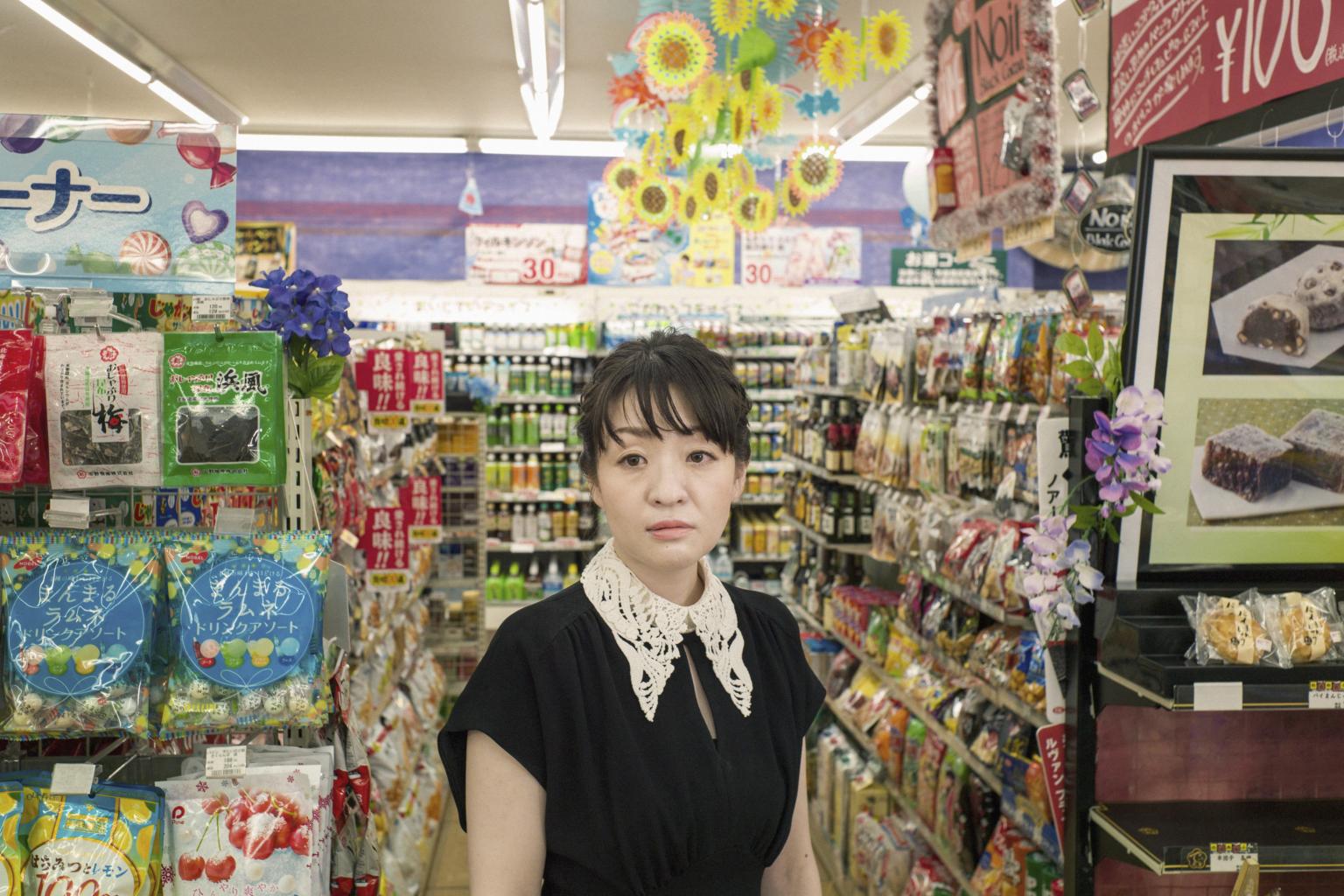Books: 18 years of convenience store work inspired Sayaka Murata's prize-winning Japanese novel
Sign up now: Get ST's newsletters delivered to your inbox

Author Sayaka Murata turned her unhappening life into a novel that won the Akutagawa Prize in 2016, one of Japan's most prestigious literary awards.
PHOTO: NYTIMES
Follow topic:
For nearly 18 years, Japanese writer Sayaka Murata worked at convenience stores, categorising coffee and croquettes, ringing up rice balls and ramen noodles and greeting customers with the cheery welcome cry of "Irasshaimase".
Such a life would be tedium for most. But the 38-year-old turned it into a novel that won the Akutagawa Prize in 2016, one of Japan's most prestigious literary awards.
That book, Convenience Store Woman, has now become the first of her novels to be translated into English by Ginny Tapley Takemori.
Its unusual heroine Keiko Furukura is, like her creator, an unmarried woman in her 30s who has spent half her life as a lowly convenience store clerk.
That she is all of these makes her, in the eyes of Japanese society, a loser. That she is nevertheless perfectly happy makes her an anomaly.
In the novel, Keiko thinks to herself: "When you work in a convenience store, people often look down on you for working there. I find this fascinating, and I like to look them in the face when they do this to me. And as I do so I always think: that's what a human is."
Says Murata in an e-mail interview through a translator: "I think true happiness means understanding what makes you truly happy and to live for that purpose.
"From the perspective of outsiders, such happiness may seem trite or weird, but as long as one understands what makes him happy, and pursues it accordingly, that would be a wonderful life indeed."
Convenience Store Woman is the 10th novel by Murata, who grew up writing short stories and dreaming of having her works adorn the shelves of a bookshop.
The Akutagawa, which has been awarded to some of the best-known Japanese writers such as Kenzaburo Oe and Ryu Murakami, is the latest in a string of accolades she has accrued for her strange fiction that challenges social mores, such as the Mishima Yukio Prize in 2013 for Of Bones, Of Body Heat, Of Whitening City, a novel about an adolescent girl's sexual awakening in a rapidly developing town.
Even after her Akutagawa Prize success, Murata continued working at the store part-time for some months. The work, she says, gave a kind of rhythm to her life that she needed to write. "I would wake at 2am to write, work my shift from 8am to 1pm, head to a cafe to continue writing and go to bed at 9pm."
While in the cafe, she sketches rough portraits of her characters in a notebook - faces, build and clothes - then constructs a scene around them. She scans the sketch into her computer, prints it out and takes it back to the cafe to refer to while she writes, also by hand.
Her prize-winning fame meant, however, that she could not work in the store without customers recognising her. "Everyone would smile and say 'congratulations'."
Her old anonymity was lost.
It might confound one as to how inspiration can be found in the ordered conformity of the convenience store. But this, maintains Murata, is its most fascinating aspect.
"Everyone repeats each unchanging day. The shop assistants, wearing the usual uniforms, would arrange the sandwiches and croquettes in the usual way while customers buy their usual cigarettes or coffee at their usual time.
"While it was always changing ever so slightly, existing within this eternally unchanging everyday life was extremely interesting."
She does not think conforming to fit into society is necessarily a bad thing. "However, I still think it is important to maintain a sense of discord. I cannot support going too far to quash this sense of discord. If I were to repeatedly do that, I would lose myself in the process."
Marriage, for instance, is something she feels many around her do out of duty rather than desire.
"I have friends who married someone they didn't like out of social pressure," says Murata, who is single. "It is painful to witness."
She says she has just finished writing a "rather dark and painful" story about "a girl who went through a very harsh puberty and believes herself to be an alien".
And after that? She is working on something even stranger, she hints.
If she could change anything about being a woman in Japan today, she would wish for more freedom. "Even though women's bodies are their own, as are their own lives, this freedom we take for granted isn't actually exercised by many who possess it. I wish from the bottom of my heart for a world in which we can live freely."
Additional reporting by Jan Lee

